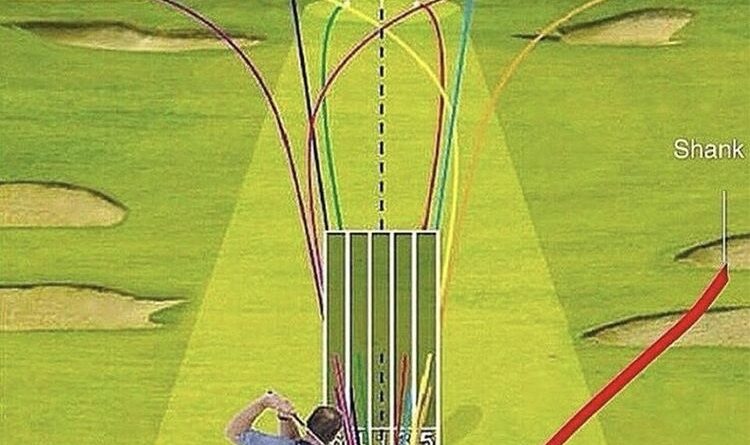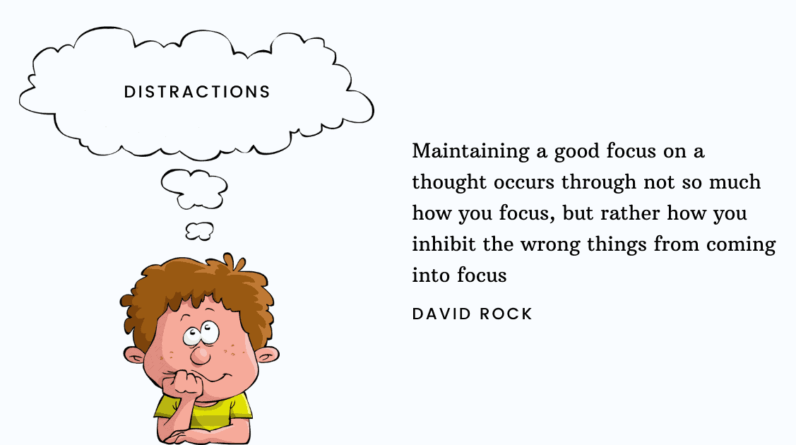Imagine this scenario: you’re out on the golf course, enjoying the fresh air and the thrill of the game. But suddenly, you find yourself in a rut, struggling to recover from a bad hole. Your confidence starts to waver, and you wonder how you can bounce back mentally. Well, fear not! In this article, we’ll explore some practical tips and techniques that can help you regain your focus and resilience after a setback on the golf course. So, get ready to channel your inner champion and make a phenomenal comeback!
Understanding the Impact of a Bad Hole
Analyzing the Emotional Response
When you experience a bad hole in golf, it is natural to have strong emotional reactions. Whether it’s frustration, disappointment, or even anger, these feelings can have a significant impact on your mental state and overall performance. It is important to take a moment to acknowledge and analyze your emotional response to better understand its impact on your game.
By recognizing your emotions, you can gain insight into how they may be affecting your thoughts and actions. For example, if you feel frustrated after a bad hole, it might cloud your judgment and hinder your ability to make clear decisions for the rest of the round. Understanding the connection between your emotions and performance is the first step towards developing strategies to cope effectively with the challenges that arise on the golf course.
Recognizing the Importance of Mental Resilience
One of the key aspects of bouncing back from a bad hole is having mental resilience. Mental resilience refers to your ability to adapt, recover, and stay focused in the face of adversity. When you encounter a setback like a bad hole, it is essential to recognize that it is a part of the game and that everyone experiences ups and downs on the golf course.
Developing mental resilience involves acknowledging that mistakes happen and accepting that they are a normal part of the learning process. Instead of dwelling on the negative aspects of a bad hole, focus on how you can bounce back and improve your performance. Embracing the challenges and setbacks can actually help you grow as a golfer and develop the mental fortitude needed to succeed in the long run.
Accepting the Reality of a Bad Hole
Managing Expectations
One of the first steps to bouncing back from a bad hole is to manage your expectations. It is easy to set high expectations for yourself and become disappointed when you don’t perform as well as you hoped. However, golf is an unpredictable game, and even the best players in the world can have bad holes.
Instead of fixating on a perfect round or a flawless performance, focus on setting realistic goals for yourself. Recognize that there will be ups and downs throughout your round, and accept that a bad hole does not define your overall golfing ability. By managing your expectations, you can reduce the pressure you place on yourself and approach each hole with a more balanced mindset.
Taking Responsibility for Mistakes
While it is important to have self-compassion and not be too hard on yourself, it is equally important to take responsibility for your mistakes. Owning up to your errors allows you to learn from them and make necessary adjustments to your game.
Rather than blaming external factors or luck, be accountable for your decisions and actions on the golf course. Take the time to reflect on what went wrong during the bad hole and identify areas where you can improve. Remember that mistakes are opportunities for growth, and by taking responsibility, you can turn a setback into a valuable learning experience.

Adapting your Mindset
Cultivating Self-Compassion
When faced with a bad hole, it is crucial to cultivate self-compassion. Self-compassion involves treating yourself with kindness and understanding, especially in moments of difficulty or failure. Instead of berating yourself for a mistake, practice self-compassion by acknowledging that everyone makes errors and that it is a part of the learning process.
By being kind and forgiving towards yourself, you can prevent negative self-talk and maintain a positive mindset. Self-compassion allows you to approach the next hole with a renewed sense of confidence and resilience, unburdened by self-criticism.
Embracing a Growth Mindset
Another mindset shift that can greatly impact your ability to bounce back from a bad hole is embracing a growth mindset. A growth mindset is the belief that your abilities can be developed through dedication, effort, and learning. Instead of viewing a bad hole as a reflection of your skills, see it as an opportunity for growth and improvement.
By adopting a growth mindset, you can more easily bounce back from setbacks and approach challenges with a sense of curiosity and determination. Understand that mistakes are not failures but rather stepping stones on the path to success. With a growth mindset, you can tap into your potential and continue to progress as a golfer.
Implementing Coping Strategies
Using Visualization Techniques
Visualization is a powerful tool that can help you bounce back from a bad hole mentally. By vividly imagining successful shots and positive outcomes, you can enhance your confidence and improve your overall performance.
After a bad hole, take a moment to close your eyes and visualize yourself executing flawless shots. Visualize the feeling of hitting the ball exactly how you want it, the sound of the ball landing perfectly, and the satisfaction of a successful outcome. By mentally rehearsing success, you can create a positive mindset and set the stage for improved performance on the upcoming holes.
Practicing Deep Breathing Exercises
Deep breathing exercises are another effective coping strategy that can help you regain focus and restore calmness after a bad hole. When faced with disappointment or frustration, it is common for your body to react with increased tension and stress.
By taking slow, deep breaths, you can activate your body’s relaxation response and counteract the physical effects of stress. Deep breathing helps regulate your heart rate and oxygen levels, allowing you to regain control over your emotions and approach the next hole with a clear mind. Practice deep breathing exercises between holes to promote relaxation and maintain a positive mindset throughout your round.

Maintaining Focus and Confidence
Refocusing on the Present
After a bad hole, it is important to refocus your attention on the present moment. Dwelling on past mistakes or worrying about future holes can distract you from the task at hand and impact your performance.
To refocus, take a moment to ground yourself and bring your attention back to the present moment. Pay attention to your surroundings – the feel of the grass under your feet, the sound of birds chirping, or the sight of the flag in the distance. By anchoring yourself in the present, you can let go of negative thoughts and approach the next hole with a fresh perspective.
Developing Positive Affirmations
Positive affirmations are short, powerful statements that can help you maintain confidence and resilience after a bad hole. By repeating positive affirmations to yourself, you can counteract negative self-talk and reinforce a positive mindset.
Choose affirmations that resonate with you, such as “I am capable of bouncing back from setbacks” or “I have the skills to succeed.” Repeat these affirmations silently or out loud before and during your round to boost your confidence and overcome any self-doubt that may arise.
Applying Problem-Solving Skills
Identifying Patterns and Adjusting Strategies
After experiencing a bad hole, it is crucial to identify any patterns or trends in your performance. Pay attention to common mistakes or recurring issues that may be hindering your progress.
Once you have identified these patterns, brainstorm strategies to address them. For example, if you consistently struggle with accuracy off the tee, consider adjusting your alignment or grip. By actively problem-solving and making necessary adjustments, you can minimize the likelihood of repeating the same mistakes and improve your overall performance.
Seeking Guidance from a Coach
Sometimes, bouncing back from a bad hole requires the guidance and support of a coach. A coach can provide valuable insights into your game and help you develop strategies to overcome challenges.
Consider seeking the expertise of a golf instructor or coach who can analyze your performance, identify areas for improvement, and provide personalized guidance. A coach can offer technical advice, mental strategies, and reassurance to help you bounce back and perform at your best.

Finding Motivation and Inspiration
Drawing Inspiration from Role Models
When faced with a bad hole, drawing inspiration from role models can help you regain motivation and perspective. Look to successful golfers who have overcome setbacks and adversity, and learn from their experiences.
Read biographies or watch documentaries about legendary golfers who have faced similar challenges. Discover how they bounced back from bad holes and setbacks, and let their stories inspire you to persevere and keep working towards your goals.
Setting Personal Goals
Setting personal goals is an effective way to stay motivated and focused, even after a bad hole. By giving yourself something to strive for, you can maintain a sense of purpose and measure your progress.
Set both short-term and long-term goals that are specific, measurable, attainable, relevant, and time-bound (SMART). Focus on aspects of your game that you can control, such as improving your accuracy or lowering your handicap. By setting goals, you can channel your energy into positive growth and remain motivated to continue improving.
Developing a Pre-shot Routine
Establishing Consistency
A pre-shot routine is a set of actions and rituals that golfers perform before every shot. Developing a consistent pre-shot routine can help you maintain focus and alleviate stress before each shot.
Create a routine that suits your needs and preferences, incorporating actions such as visualizing the shot, taking a deep breath, or practicing a rehearsal swing. By consistently following your routine, you can establish a sense of familiarity and confidence, allowing you to approach each shot with clarity and composure.
Incorporating Relaxation Techniques
In addition to consistency, it can be beneficial to incorporate relaxation techniques into your pre-shot routine. By engaging in relaxation techniques, such as progressive muscle relaxation or controlled breathing, you can calm your mind and body and optimize your performance.
Experiment with different relaxation techniques to find what works best for you. Whether it’s focusing on your breath, tensing and relaxing your muscles, or using visualization techniques, find techniques that help you achieve a state of relaxation and focus before each shot.

Building Emotional Resilience
Engaging in Mindfulness Practices
Mindfulness practices can significantly enhance your emotional resilience and ability to bounce back from a bad hole. Mindfulness involves being fully present in the moment, non-judgmentally observing your thoughts, feelings, and sensations.
By incorporating mindfulness into your golf routine, both during practice and on the course, you can cultivate greater self-awareness and emotional balance. Practice simple mindfulness exercises, such as focusing on your breath or scanning your body for sensations, to anchor yourself in the present moment and navigate challenges with clarity and resilience.
Building a Supportive Network
Building a supportive network is essential for developing emotional resilience. Surround yourself with individuals who understand and appreciate the challenges of golf and can offer encouragement and support.
Connect with fellow golfers, join golf clubs or leagues, or engage in online communities to find like-minded individuals who can uplift you during moments of setback. Having a supportive network can not only provide emotional support but also offer valuable perspectives and insights to help you approach the game with a more resilient and positive mindset.
Reflecting and Learning from Mistakes
Accepting Imperfections
To truly bounce back from a bad hole mentally, it is necessary to accept your imperfections. Understand that golf is a game of continuous learning and improvement, and mistakes are a natural part of the process.
Instead of dwelling on your shortcomings, focus on what you can learn from your mistakes and how you can apply those lessons moving forward. Embrace the growth mindset and approach every round with a sense of curiosity and openness to self-improvement. By accepting your imperfections and learning from your mistakes, you can bounce back stronger than before and continuously progress as a golfer.
Creating a Growth Plan
Reflection and learning from mistakes is most effective when followed by a concrete plan for growth and development. Create a growth plan that outlines specific actions and strategies you will implement to address areas of improvement.
Break down your plan into achievable steps and set deadlines for yourself. This will help you stay accountable and motivated in your journey towards improvement. Regularly revisit and update your growth plan as you learn and grow, ensuring that you are continually challenging yourself and striving for progress.
By understanding the impact of a bad hole, accepting the reality, adapting your mindset, implementing coping strategies, maintaining focus and confidence, applying problem-solving skills, finding motivation and inspiration, developing a pre-shot routine, building emotional resilience, and reflecting and learning from mistakes, you can bounce back from a bad hole mentally. Remember, golf is a game that tests both your physical and mental abilities, and by cultivating mental resilience and adopting effective strategies, you can overcome setbacks and excel on the golf course. Keep practicing, stay positive, and enjoy the journey of improvement.







